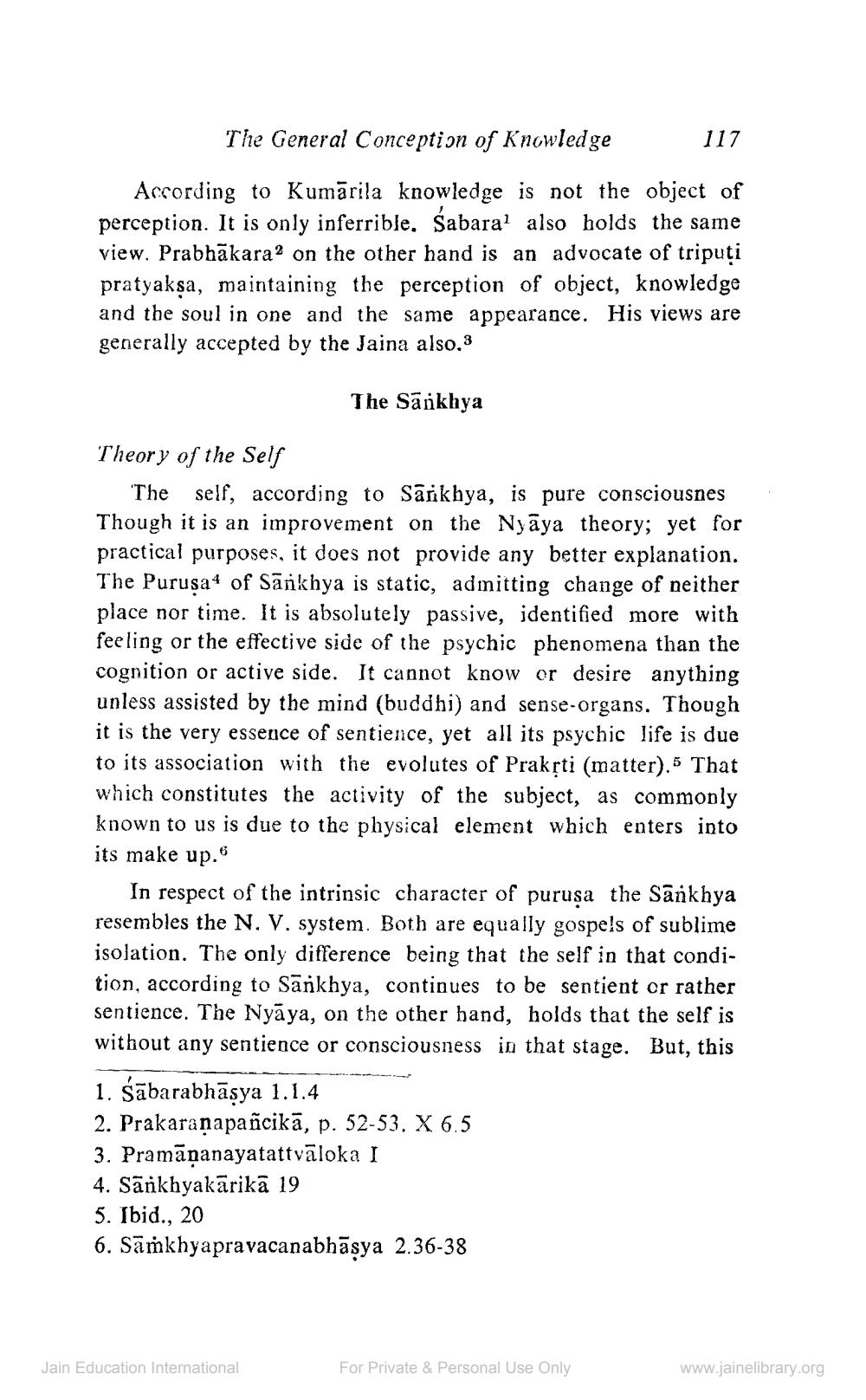________________
The General Conception of Knowledge
117
According to Kumārila knowledge is not the object of perception. It is only inferrible. Sabara? also holds the same view. Prabhākaraon the other hand is an advocate of tripuți pratyaksa, maintaining the perception of object, knowledge and the soul in one and the same appearance. His views are generally accepted by the Jaina also.3
The Sānkhya
Theory of the Self
The self, according to Sarikhya, is pure consciousnes Though it is an improvement on the Nyāya theory; yet for practical purposes, it does not provide any better explanation. The Purusa4 of Sankhya is static, admitting change of neither place nor time. It is absolutely passive, identified more with feeling or the effective side of the psychic phenomena than the cognition or active side. It cannot know or desire anything unless assisted by the mind (buddhi) and sense-organs. Though it is the very essence of sentience, yet all its psychic life is due to its association with the evolutes of Prakrti (matter).5 That which constitutes the activity of the subject, as commonly known to us is due to the physical element which enters into its make up.
In respect of the intrinsic character of purusa the Sankhya resembles the N. V. system. Both are equally gospels of sublime isolation. The only difference being that the self in that condition, according to Sārkhya, continues to be sentient or rather sentience. The Nyāya, on the other hand, holds that the self is without any sentience or consciousness in that stage. But, this
1. Šābarabhāsya 1.1.4 2. Prakaraṇapañcikā, p. 52-53. X 6.5 3. Pramāṇanayatattvāloka I 4. Sārkhyakārikā 19 5. Ibid., 20 6. Sāṁkhyapravacanabhāsya 2.36-38
Jain Education International
For Private & Personal Use Only
www.jainelibrary.org




